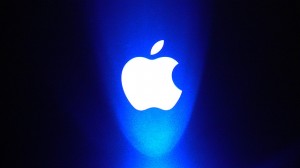 Much of my life for the past two decades has involved leaders and their personal and organizational storytelling. Consequently, one of my favorite quotes on leadership is from Renault CEO Carlos Ghosn: “A good leader brings results. A great leader writes a new story.” When I consider the achievements of Steve Jobs from this perspective, I wonder how history will judge his achievements at Apple.
Much of my life for the past two decades has involved leaders and their personal and organizational storytelling. Consequently, one of my favorite quotes on leadership is from Renault CEO Carlos Ghosn: “A good leader brings results. A great leader writes a new story.” When I consider the achievements of Steve Jobs from this perspective, I wonder how history will judge his achievements at Apple.
It goes without saying that Jobs’ legacy will be that of a visionary who changed at least one industry, maybe even several. He was arguably more responsible than any other individual for shaping the way we interact with our electronic devices—personal computers, music players, cell phones, and perhaps soon watches as well. We will remember a man with a unique ability to sprinkle his marketing magic over the world, and a capacity for showing us how to use equipment in ways we had not previously envisioned.
My question, though, is will future generations consider him more than a technology visionary. Will he also be seen as a truly great leader of his time, one who wrote a new story?
As we saw in the previous post, the Steve Jobs who returned to Apple in 1998 was a far different manager than the one who left in 1985. The man who departed in 1985 had focused single-mindedly on what the company did, making sure they designed and shipped great products. The one who came back some 13 years later was thinking far more about the “who” and “how” of Apple, as opposed to merely the “what”. In his time away from the company, he had learned that great companies select their people with care, and build robust cultures around them. It is the people and the cultures that engender lasting greatness.
Recently, I listened to a speech where Jobs’ biographer Walter Isaacson commented that Steve never liked the word “entrepreneur”. According to the former Apple CEO, entrepreneurs are people who get energy particularly from the startup phase. They often begin things, develop them, sell them, make their money, and go on to their next project. In contrast, Jobs claims that his goal was always to create something enduring, to turn Apple into an institution.
To me, this is the standard against which we should judge Steve Jobs. Was his gift to the world a relatively short-term thing, in the form of a series of extraordinary products, or has he truly left us the institution of Apple Inc.?
Transitioning to the post-Steve era: When Tim Cook was named Apple’s CEO on August 24, 2011, the stock price dropped precipitously overnight. Apparently, the prophets of the company’s doom—along with many others—saw this as “game over”. Without the legendary co-founder to carry them, their successes of the past could not possibly continue. Even those bullish on Apple and Mr. Cook seemed to be thinking, “he’ll be ok, but he’s no Steve Jobs.”
To my mind, they were missing the point. As stock markets are wont to do, they focused on the short-term, superficial aspects of the question. Of course, Steve was going away, and of course it could not possibly be the same company without him. Nonetheless, it was disappointing, for me at least, to see that most of the world still seemed to be carrying the image of a heroic Steve Jobs who was almost single-handedly responsible for the stream of innovations that had turned Apple into one of the world’s most valuable and admired companies.
As Fortune reported on September 8, 2011 in “Steve Jobs’ real legacy: Apple Inc.”, Mr. Jobs had been quietly working on his most important project: making sure his beloved company was built to last. Without his characteristic hype or fanfare, Jobs had been busily setting the groundwork for a mammoth, spaceship-like campus that would house the company for years to come. It was to be his most important contribution: not a new tablet or phone but rather “an enduring and permanent Apple that has the architecture, the processes, the tools—and the soul—to outlive its iconic co-founder.”
In summary, it is too soon to judge now, but we will perhaps know some day the answer to the most crucial question about Steve Jobs. Looking back, will his legacy be a series of phenomenal products, or will it be the institution of Apple Inc.? If he is truly a “heroic” leader, it will be because his final gift was a company that can continue to lead its industry and to astound us with innovation, even though its spiritual leader is gone. If so, he will have written the next chapter of a new story.
Image: Flickr-user wicker_man
